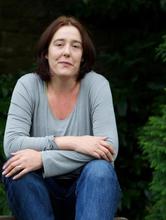Dr Emma Williamson, Senior Research Fellow in The Centre for Gender and Violence Research, School for Policy Studies, discusses how the recent storyline in The Archers highlights the often silent issue of coercive control and its effect on victims/survivors.
I have to admit that I don’t normally listen to The Archers. And people don’t normally talk to me about the story lines. That all changed when the long running series began a story over 18 months ago which looked at the issue of domestic violence and coercive control. One of the most difficult things that victims/survivors of abuse tell us, and have consistently told us since the first women’s refuges in the 1970’s, is that it is the non-physical abuse they experience which is the most difficult to deal with [Williamson, 2000]. The bruises and other injuries victims suffer from physical abuse are visible. They are evidence to other people but also to oneself. There it is in black and blue. What is more difficult to prove and believe, is that someone who purports to love and care for you would bully, undermine, and manipulate you. The women I spoke too after the fact would either say, ‘how could someone treat me like that?’ or more often than not, ‘how could I let someone treat me like that?’ – still blaming themselves.
As the Archers storyline shows, this type of abuse is characteristic of a pattern of ‘low level’ abusive behaviours rather than the explosive incident people tend to think about when they consider ‘a domestic’. It involves small everyday things which result in people staying away, isolating victims from their family, friends, and networks of support. Recent research from Bristol has documented the massive impact of such abuse on friends and family [Gregory et al, 2016], as well as the evidence we know about the impact on victims [Mullender et al, 2005], their children [Mullender et al, 2002], and perpetrators themselves [Hester et al, 2015]. Doctors, the police, courts, social services, all tend to think of interventions in terms of those single incidents which means that the on-going manipulation of victims goes unnoticed.
Continue reading →






